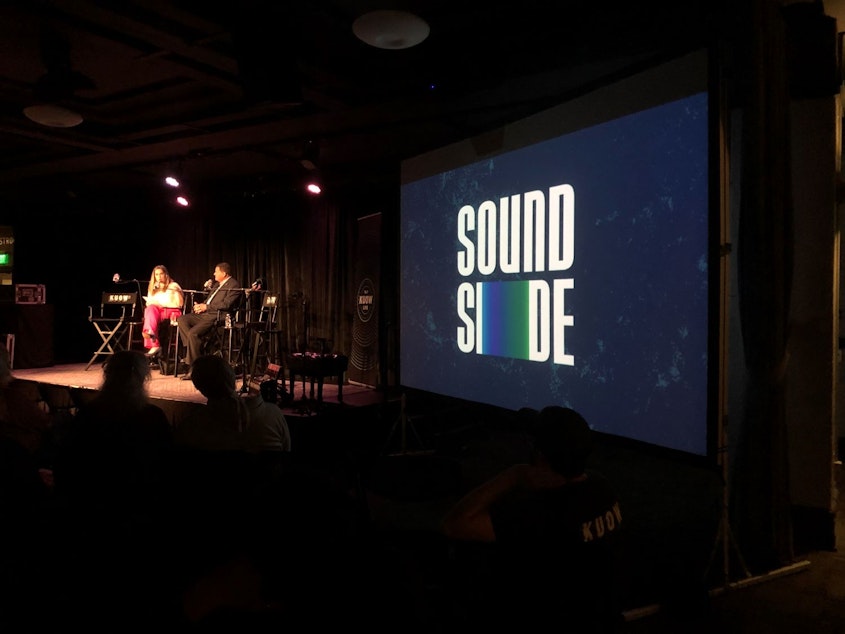Sound it Out: sharing your two cents on cashless businesses

Last week, we aired a segment about a proposal from King County Councilmember Jeanne Kohl-Welles that would require businesses in unincorporated areas of King County to accept cash.
We heard from a lot of you about how this move to cashless payments is already affecting your lives. We also heard from one business owner about the reasons why her business will never stop accepting cash.
Robin Wehl-Martin is the founder and co-owner of Hello Robin cookies.
Hello Robin has two locations, both in King County proper, so Kohl-Welles’ proposal wouldn’t apply to her.
After our segment last week, Robin reached out to tell us about a story involving a little boy — and an ice cream sandwich — that ultimately changed how she thinks about going cashless.
During the early stages of the pandemic, Hello Robin transitioned to cashless payments, when information about how Covid-19 spreads was unclear.
Sponsored
But one day, "A little boy in the neighborhood came down to buy an ice cream sandwich and saw our sign that said, 'We don't take cash,' [and] went home really upset," Wehl-Martin said.
The boy's father called Wehl-Martin, and expressed how he felt the decision to not accept cash alienated certain populations. It caused Wehl-Martin to take a step back and think about the communities her business serves.
"It made me realize not everybody has access to a bank account, a credit card," Wehl-Martin said. "And you know, it just struck me as it's very inequitable."
Hear the original segment below, or click here.
Soundside 20230119 Cashless Kc
Sponsored
We also got feedback last week about our story on public records requests and how some members of the Washington State Legislature are avoiding them.
In 2019, the Washington Supreme Court ruled that state legislators are subject to the state’s public disclosure law.
But since then, some elected officials are denying public records requests from journalists and others — citing something called “legislative privilege.”
Shauna Sowersby, a reporter for The Olympian, ran into this problem.
"They say that this is something that has always existed in the state constitution," Sowersby said. "And the basis for that claim lies in Article II, Section 17 of the Washington State Constitution that gives legislators the freedom of debate, but that only shields them from prosecution or civil action while they're debating on the floor."
Sponsored
This article does not apply to other forms of public records.
Mary White, an attorney in Lake Forest Park, reached out to Soundside with her thoughts.
"I wanted to say that working for the state as an attorney, we often get Public Disclosure Act requests," White said. "And everybody has to try to comply with these, which involves, you know, some very meticulous procedures combing through your various materials on your computer or your phone, etcetera."
But often times, these requests are broadly and poorly crafted, and can take hours and hours of an employees' time, according to White.
"If we're going to continue to have one of the most liberal public disclosure laws in the nation and give our citizens this right and privilege, we should educate everyone on how to exercise this right correctly."
Sponsored
Hear the original segment below, or click here.





